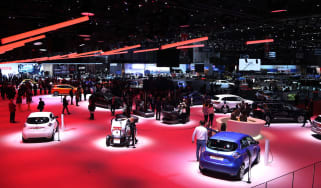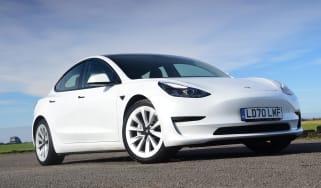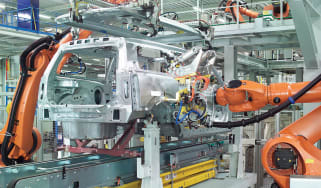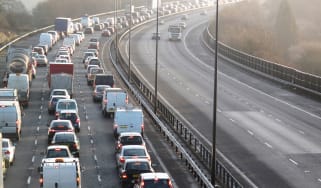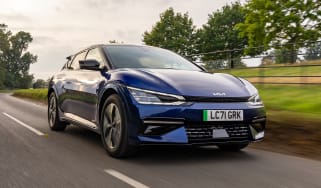UK petrol and diesel prices: cost of petrol hits record high
Average price of UK petrol is now 142.94p per litre, exceeding the previous all-time high of 142.48p set in April 2012
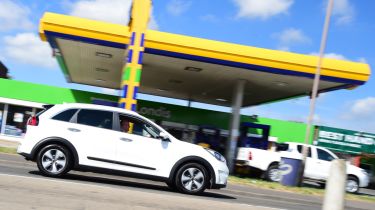
The average price of petrol in the UK has hit an all-time peak of 142.94p per litre at the pumps, beating the previous record of 142.48p set in April 2012.
There’s been an overall increase of 28ppl in unleaded pump prices in the last 12 months, according to the latest RAC Fuel Watch data, having started at 114.5ppl in October 2020. As such, the cost of filling up a typical family car’s 55-litre fuel tank has risen from £63 to £78.61.
Rising bills at the pumps have been driven by the price of oil increasing from $40 a barrel a year ago to $85 now, with $90 per barrel predicted by the end of 2021 and $100 a possibility - this means petrol prices are expected to remain high at UK pumps for the foreseeable future.
The UK’s switch to E10 petrol in September also contributed to the jump in prices, the RAC says, as there is a higher ethanol content and ethanol is more expensive than petrol. Fuel duty accounts for 57.95ppl, while VAT is nearly 24p.
Retailers have also raised their margin from 5.5ppl to 7.5ppl since April 2020 as they try to recover from the losses they saw during the Covid-19 lockdowns.
RAC fuel spokesman Simon Williams said: “This is truly a dark day for drivers, and one which we hoped we wouldn’t see again after the high prices of April 2012. This will hurt many household budgets and no doubt have knock-on implications for the wider economy.
“The big question now is: where will it stop and what price will petrol hit? If oil gets to $100 a barrel, we could very easily see the average price climb to 150p a litre.
“Even though many people aren’t driving as much as they have in the past due to the pandemic, drivers tell us they are just as reliant on their cars, and many simply don’t have a choice but to drive. Those on lower incomes who have to drive to work will seriously struggle to find the extra money for the petrol they so badly need.
“We urge the Government to help ease the burden at the pumps by temporarily reducing VAT and for the biggest retailers to bring the amount they make on every litre of petrol back down to the level it was prior to the pandemic.”
What makes up the price of UK fuel?
The price of fuel can be divided into three sections; the taxes imposed by the Government, the costs of drilling, refining and transporting, and the profit margins for the fuel companies.
For petrol, diesel and bioethanols, the Government gets around 65 per cent of the overall cost through fuel duty and value added tax (VAT). The fuel duty represents the fixed price of fuel – it stays the same regardless how much overall oil prices fluctuate. Currently, the Treasury adds 57.95 pence to each litre of fuel through fuel duty, and another 20 per cent through VAT. How much you pay in VAT depends on how much fuel you purchase.
The second biggest chunk comes from the wholesale costs of the fuel itself. The wholesale cost is a combination of currency exchange rates, global oil prices, and even domestic supply and demand.
Finally, the smallest share of what motorists have to pay for fuel comes from the filling stations themselves. A typical fuel station profits around 2p-5p per litre, but tough competition can drive this down further. Supermarkets increasingly use fuel prices as a loss leader to tempt customers in.
Why is supermarket fuel cheaper than an independent forecourt?
Supermarket forecourts usually offer the cheapest fuel prices and this is because of the market power supermarkets hold. Companies like Asda, Tesco, Sainsbury’s and Morrisons are all in competition with one another, so they keep fuel prices as low as possible hoping that when motorists come to fill their tank, they might do their weekly grocery shopping, too.
There are persistent rumours that supermarket fuel contains fewer additives and is of lesser quality than fuel from traditional forecourts, but there’s little hard evidence of this. All fuel sold in the UK has to abide by the standards set in the Motor Fuel Regulation.
Why is fuel so expensive on motorways?
Motorway fuel stations argue the reason their prices are higher is that many of them are open 24 hours a day and offer more services than a regular forecourt. Motorway fuel stations also pay high rent prices for the buildings they operate.
In more remote areas, fuel is often more expensive because of the higher transport and supply costs, but according to RAC fuel spokesman Simon Williams, this doesn’t apply to motorway stations: “We can see no reason why motorway fuel should be so much more expensive. In fact, arguably it is much easier from a delivery point of view than it is getting fuel to urban filling stations.”
Why is diesel more expensive than petrol?
Although diesel and petrol are taxed the same by the Treasury, historically diesel has been more expensive than petrol, as domestic refineries have struggled to meet demand. This has forced the UK to import diesel from other countries at a greater rate than petrol. In addition, diesel prices are pushed up by the cost of the additives that go into the fuel.
Furthermore, the gap between UK petrol and diesel prices widens during the winter. The end of the US “driving season” means retailers have a surplus of petrol they can’t export, so they sell it here at a lower price. Diesel demand, meanwhile, increases across continental Europe, where the fuel is commonly used in heating oil.
However, the influx of cheap diesel from countries like Saudi Arabia has turned the tide, swinging diesel wholesale prices closer to that of petrol, and bringing the pump price down with it.
What's your view on fuel prices in the UK? Do we pay too much for our petrol and diesel? What would you do about it? Join the debate in our comments section below...




